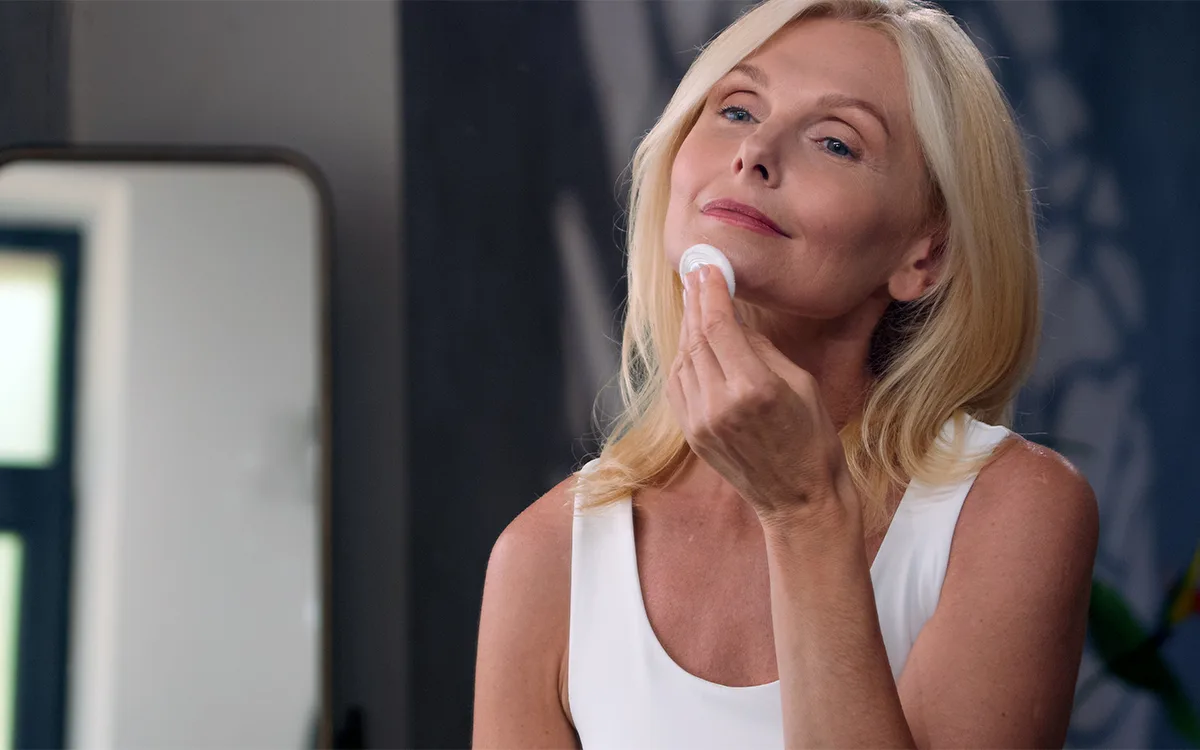Menopause is a natural part of aging, bringing significant changes to your body, including your skin. As hormone levels shift, you may notice new skin issues, from increased dryness to dark spots and even thin skin. While these changes can feel frustrating, adapting your skincare routine can help your skin feel its best through this transition.
If you have been using the same skincare products for years, it might be time for a refresh. Menopausal skin has different needs, and knowing how to care for it can make all the difference. Let us explore how menopause affects your skin and what you can do to support it.
Why Does Menopause Affect the Skin?
During menopause, estrogen levels decline, leading to noticeable changes in the skin. One of the most common concerns menopausal women face is dry skin. As estrogen drops, the skin loses its ability to retain moisture, leading to increased dryness and a rougher texture.
Another major factor is collagen production. Estrogen plays a crucial role in maintaining collagen, the protein responsible for keeping skin firm and plump. With declining collagen levels, skin becomes thinner and more prone to fine lines and wrinkles. This is also when sun-damaged areas become more visible, making sun protection more important than ever.
Common Skin Issues During Menopause
Menopausal skin undergoes multiple changes, leading to a variety of skin concerns:
- Dry Skin: A loss of moisture retention leads to skin feeling rough, flaky, and tight.
- Thin Skin: Reduced collagen production makes the skin more fragile and sensitive.
- Dark Spots: Sun exposure over the years can catch up, causing pigmentation changes and uneven skin tone.
- Increased Sensitivity: The skin barrier weakens, making it more reactive to environmental factors and skincare products.
- Loss of Elasticity: With less collagen and elastin, skin may appear looser, especially around the jawline and eyes.
How to Adapt Your Skincare Routine
The good news? Small adjustments to your skincare routine can help address these concerns and support your skin through menopause. Here are some key changes to consider:
- Hydrate, Hydrate, Hydrate
Menopausal skin craves moisture, so hydration should be your top priority. Look for products containing hyaluronic acid, a powerhouse ingredient that attracts and locks in moisture. Layering a hydrating serum under your moisturizer can help keep skin soft and supple.
- Use a Gentle Cleanser
Cleansing is essential, but harsh formulas can end up stripping your skin of its natural oils. Opt for a hydrating, non-foaming cleanser that cleans without leaving your skin feeling tight or dry.
- Choose Skincare Products That Support Collagen
Since collagen production declines during menopause, using products that encourage its natural maintenance can be beneficial. Look for skincare products with ingredients like peptides and vitamin C, which can support skin elasticity and even out skin tone.
- Apply a Broad-Spectrum Sunscreen Every Day
Sun exposure accelerates the signs of aging, making sunscreen a must for menopausal women. Apply a broad-spectrum sunscreen with at least SPF 30 every morning, even if you are not spending much time outdoors. This helps protect against further sun-damaged skin and the development of new dark spots.
- Nourish Your Skin Barrier
With thin skin and increased sensitivity, using products that reinforce your skin barrier is crucial. Ceramide-rich creams help replenish the skin’s protective layer, preventing moisture loss and irritation.
- Avoid Harsh Ingredients
Your skin may become more reactive to strong exfoliants or alcohol-based products. Instead of aggressive treatments, choose gentle exfoliation methods like lactic acid, which can smooth the skin without causing irritation.
- Support Skin from Within
A skincare routine is only part of the equation, your diet and lifestyle also play a role. Staying hydrated, eating foods rich in antioxidants, and getting enough healthy fats can all support skin health. Consider including foods that naturally support collagen production, such as citrus fruits, leafy greens, and nuts.
Lifestyle Tips for Healthy Skin During Menopause
Aside from skincare products, adopting healthy lifestyle habits can further support your skin:
- Eat a nutrient-rich diet: Incorporate omega-3 fatty acids from sources like salmon, flaxseeds, and walnuts to help maintain skin hydration.
- Exercise regularly: Physical activity promotes healthy circulation, delivering oxygen and nutrients to the skin.
- Prioritize sleep: Quality rest allows the skin to recover and regenerate.
- Avoid smoking and excessive alcohol consumption: These habits can accelerate skin aging and contribute to dryness.
Embracing Your Skin’s New Chapter
Menopause brings changes, but it also offers an opportunity to rethink how you care for your skin. By choosing nourishing skincare products, staying hydrated, and prioritizing sun protection, you can support your skin’s health during this stage of life.
The key is to listen to your skin’s needs and adapt your routine accordingly. With the right care, menopausal skin can still feel vibrant, strong, and well-nourished.

